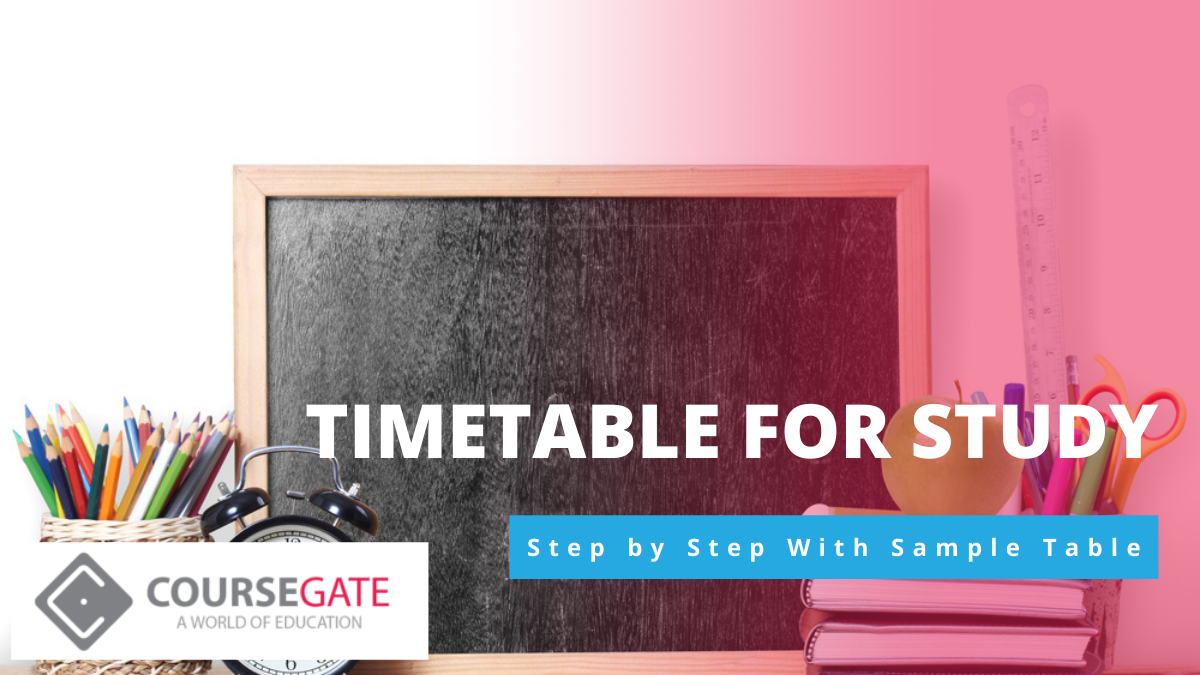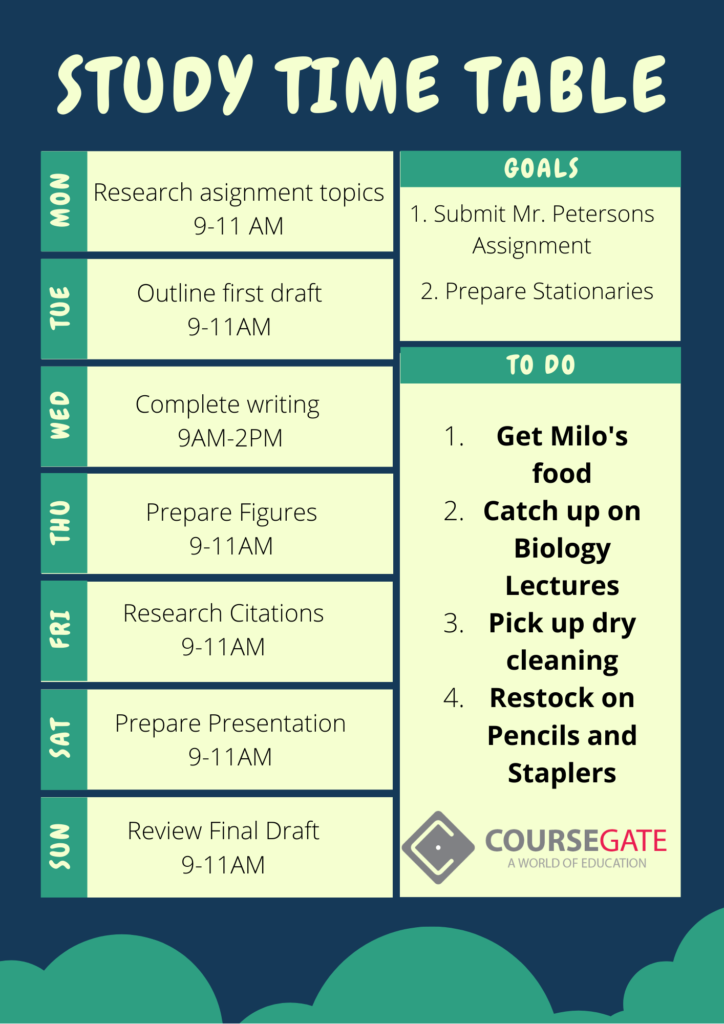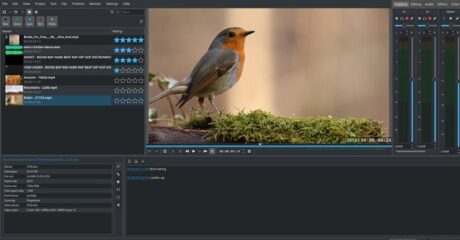

It’s no news that technology has made the human learning process a walk in the park compared to in the past. Literally tons of reading material is available on the palm of our hands. That too without any restrictions whatsoever. While all of this is true, there is also a downside to all this. The availability of knowledge has become the cause of decision fatigue. A scenario where you might have difficulty deciding what to learn in the first place. In such a scenario planning out how to study in the best course of action. With that in mind we’ve created this blog on creating a timetable for study to guide you through the process of efficient learning.
Students nowadays suffer from decision fatigue more often than they’d like to admit. As curriculums become more expansive and study time dwindles, there is no way but to approach this all with a plan. This brings us to the topic of this blog. While the idea may seem straightforward it still requires dedication to bear fruit. Here we’ll talk about how you can make the best timetable for your studies, without compromising the other aspects of your life.
Table of Contents
Step-by-step guide to making a timetable for study
In this section we’ll go step-by-step on how to create a study timetable dedicated for you (or, anyone for that matter). If you’re a highschool or graduate student chances are you’ve felt there aren’t enough hours in the day to fit in all your activities. With that in mind, we’ve tried to simplify the task so you can get the most benefit from minimum effort.
Step 1: Find out your learning style
Knowing how you learn is quite obviously the first step of creating an effective timetable. Learning something new is difficult as it is, without understanding how you learn makes it even more so. There is no way you can learn efficiently unless you pick apart your learning process. We’ve found five learning styles that include every type of learner into one of two groups.
There are 5 different styles of learning, all of which fall into one of two groups.
1. Visual learners
Individuals who learn best through watching things. This is directly correlated to our spatial awareness. Most scientists today believe that men are more likely to be visual learners than women because of their heightened spatial awareness. Although not equivalent to photographic memory, visual learning works through storing visual details and ques to create learning anchors.
2. Aural learners
The same concept applies to learning through listening. Many people find it easier to learn from hearing materials rather than reading. If you’re one of them, then class lectures are the best place for you to learn. In any case you ought to focus on listening to your teachers lectures and the occasional TED talk if you’re up for extra credits.
3. Verbal Learner
Some prefer using words in writing and speech comes naturally. If you’re among them there is a good chance you’d benefit from saying what you learn out loud. Verbal learning requires paying attention while you read and say what you’ve learned out loud. To try it out you could read out this section to see if you can retain anything.

4. Physical Learner
Physical learners learn through interacting with objects better than any other way. This sometimes causes a hindrance cause reading digital materials is kind of counter intuitive if you are a physical learner. In most cases using printed material such as books and supplementary notes is the best course of action.
5. Logical Learner
The last type are called logical learners. .If you’re a member of his group you’ll need to understand logical relationships between the information which is part of your studies. Logical learners depend on recalling patterns rather than creating impressions or sounds.
Try to create your own arrangement of the five learning styles and two categories, maybe draw a mind map or use index cards to build a structure that works well for you.
No matter which of these you are, you can fall into one of two groups: solitary learner or social learner.
Step 2: Set realistic study goals

There are two parts to accomplishing anything. First you need to plan how to handle the task and second is to take the necessary actions. People more often than not tend to pay more attention to one and not the other. Completing goals is too difficult that way. What you need to do is have a plan and know exactly what you need to do.
There are two parts to figuring out this plan.
Part 1: Pick a very simple goal for your semester
You need to pick a goal that is simple for your current term or semester. For instance, you could make it your goal to write 3 essays, attend 5 courses, or complete a 6-month internship.
Remember, your study goal should not be results-oriented, rather should focus on the experience you earn. The goals we mentioned in the examples are all on you.
However, if your goal is to complete the degree, pass 5 courses or get excellent feedback on your internship, that’s not entirely up to you. When setting goals for your personal timetable for study, the outcome should not depend on others. It must be something you can manage.
Part 2: Create a list of all the tiny actions you need to take towards your goal
Once you’ve figured out your goals, you then need to divide them up into small tasks. Each of these tasks should contribute to your goals. Here’s an example for how
1. Attend lecture 1
2. Attend lecture 2
3. Attend lecture 3
4. Complete practice exam 1
5. Solve model question 1, etc.
It’s important to quantify your smaller tasks. For example, instead of labeling tasks such as “work on assignment” write “add minimum 300 word paragraph”. This will help you keep track of each bit of progress while minimising the workload. If you need more guidance on setting goals and managing time check out our course on goal-setting and time management.
Step 3: Make study time a part of your daily routine
To actually create a fruitful study plan you need to incorporate the study plan as part of your routine. There’s a saying that, while amateurs sit around for motivation to come to them professionals go out in search of it. This applies to everyone in general. The point is to not waste time thinking you don’t need to work right away. Instead, work everyday like clock work whether it be studies, practice or any other activity. Many believe performing an activity everyday regardless of how you feel about it is the key to becoming better at it.
To make studying part of your routine, first you need to pick a time of day when you function at your best. For most people, it’s the morning. Whenever you do choose to study it’s important that you keep it on your work schedule everyday. Remember, consistency is more important than taking huge steps. Similarly, 3-4 hours of solid study time beats 8 hours of mixed activities anyday.
Step 4: Structure your timetable for study
Studying is a demanding task both physically and mentally. If you feel worn out and can’t pull yourself together to focus on your studies, don’t feel disheartened. This happens to most of us.
To get the maximum out of your study time you need to actually study less. Sounds counter intuitive right? Well the explanation is the human mind is not designed to focus on one task for more than roughly 40 minutes.
So, when you push a study session beyond say an hour you’re actually causing fatigue to your brain. It’s a very common problem that can be solved with a method called the Pomodoro Technique.
To apply this technique you set a timer for 25 minutes and start your session. You can either focus on the most difficult task of the day or the easiest, to be frank both works. The point is to stay focused.
Once the timer runs out you set the timer again to 5 minutes for a short break. Use this time to recharge yourself so that your brain gets some time to breath. It’s a good idea to use this time to stretch out your limbs and do some breathing exercises.
This’ll keep you from accumulating stress in your body and supply your brain with the necessary oxygen to function at full capacity. Once the break time is up, get right back to studying. You’ll find that the five minute break will actually make the next 25 minutes of study more effective.
Step 5: Create your study zone
Having a specific setting for your studies will help you get into the study mindset. An ideal study zone should have no distractions in it. It’s better to not leave stacks of papers, books, bills, pens, magazines, phones, etc. near your study zone. The best idea is to have at least two study zones, so you can switch things up if needed.
Put your phone on silent mode when you’re in your study zone and, if possible, leave it in another room. Avoid rooms where the TV is or spots close to the entrance where people are coming and going.
Setting your browser to reopen all tabs from your previous session might seem helpful, but what it actually does is produce information overload. Our advice is to set your options to the new tab to make sure you always start with a clean slate. While some find devices helpful for studies, others simply don’t. The pandemic situation has forced such people out of their comfort zones into the online learning system. Check out our blog on physical and online classrooms to find out which is better for you.
Step 6: Take notes depending on your learning style
Taking notes is important, there is no debate on that. However, you shouldn’t take notes of everything! Paying attention to the lecture is actually more important than getting all of it on your notepad.
For aural learners it’s better to direct full attention to lecture. Visual learners find it helpful to draw sketches and diagrams or copy the mind maps and graphic schemes the teacher uses to explain a topic. Verbal learners should rather jot down key points as they listen.
The matter isn’t how you take notes or how you use them. No one needs to approve your note taking methods as long as you find it effective.
Step 7: Review your notes regularly
Once you do have proper notes it’s important to go back to them for revisions. Whether it be before or after your study session solely depends on you. Bethoven used to write down every bit of melody he ever wrote, yet he never looked at them when actually composing. You might ask “why keep notes in the first place?“. The answer is he memorised his melodies by writing them down, otherwise he could never remember them after the moment passed.
Unlike the musical genius you might need to look at your notes afterwards so try to make them comprehensive for yourself. It doesn’t matter whether you’re a genius or not. What matters is you get the job done in time.
Step 8: Find at least one learning partner
Try to squeeze in at least one session with a learning partner so you can share your learning outcomes. Apart from sharing a learning session what having a learning partner actually does is it creates accountability. It’s easy to shrug yourself off when you’re feeling down, not so easy when you have a friend involved. Accountability does wonders for human productivity and there’s no reason you shouldn’t tap into it to gain an advantage in your studies.
Step 9: Create good sleeping habits
Sleeping should be a part of your study plan. Your brain is not designed to take-in information in a sleep deficient state. Not getting enough sleep before studies will reduce your attentiveness and actually waste more time than what you save sleeping less. Athletes, math geniuses, chess players all agree on the importance of sleep in human performance. So don’t forget to accommodate time for sleep when allocating time for studies. The last thing you need during exams is to face burnout so make sure you get at least 7-8 hours of sleep.
Extra tips

Here are some tips for creating a study plan and using it efficiently. Your timetable needs to be customised to your liking and the following tips help you do just that.
Make it visible
Place your time-table in plain sight, preferably where you plan to work and study. This will help keep you on track and focused. Keep a copy with yourself as well so you can look it up when you need to add new tasks away from home. The wall next to your study table is good, although some of you may find it better to set as your desktop wallpaper.
Prioritise
To make your time-table effective it is essential to prioritise your tasks. New tasks will always spring up and it’s important to know which tasks you can push back for newer more urgent tasks.
Be flexible
The inevitable truth is life gets in the way! Whether it’s your Mum calling for that weekly check-up, or you get late because it’s raining cats and dogs. Whatever it is, don’t let it bungle your flow. Try to keep some spare room in your schedule to compensate for any tasks that get side-lined. Life happens to everyone.
Prepare the night before
We’ve all faced the tidying-up syndrome when sitting to study. The paper isn’t right, can’t find the perfect playlist, misplaced the lucky pen, the list goes on and on. Admit it, you’ve probably spent more time preparing for studies than the time you actually spent studying. To avoid this, prepare beforehand, ideally the previous night. This way you can start studying from the moment you start.
Sample Time-Table for study
Here we’ve prepared a sample time-table for you to clear things up furthermore. Feel free to download it to use as a template for making your own time-table.

Ending Notes
Preparing a study plan is the first step to get the most out of your study plans. The key idea is to spend less time thinking about studying and more on actually studying. If you stay focused and stay true to your plans, success is sort of a guarantee. To finish off on this remember, your study time-table is only as good as your ability to stick to it. To quote Winston Churchill “However beautiful the strategy, you should occasionally look at the results.”
- All Courses
- IT & Software99
- Microsoft Office64
- Nonprofit & Charity55
- Health & Safety91
- Life Style73
- DIY43
- On Demand Courses42
- Quality Licence Scheme Endorsed113
- Health and Fitness77
- Health and Care161
- Admin39
- Digital Marketing48
- Psychology & Counselling83
- Teaching and Education99
- Design75
- Management129
- Beauty42
- Accounting61
- Employability199
- Human Resource44
- Personal Development131
- Marketing59
- Business153
- Photography38
- Language26













